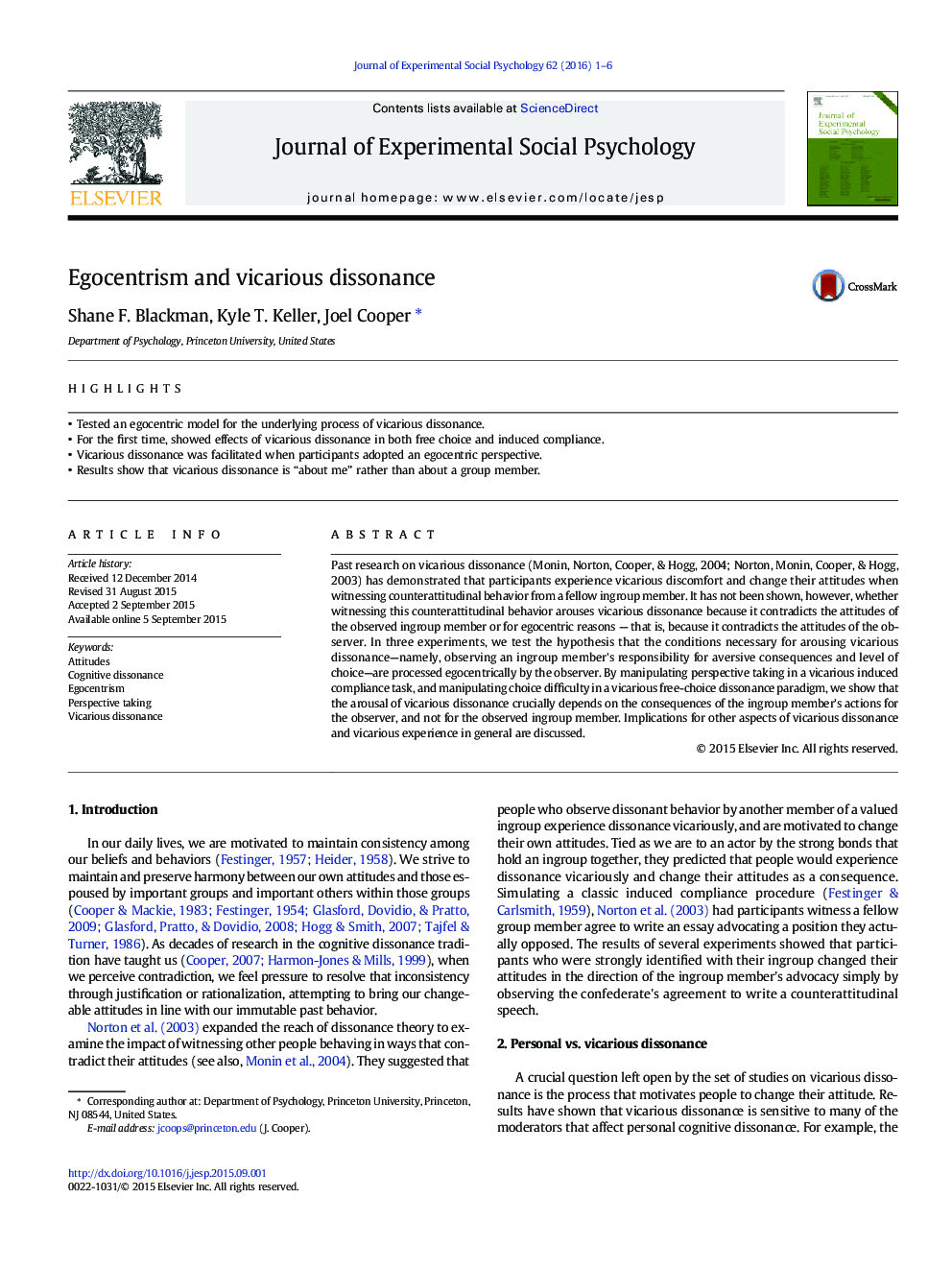| کد مقاله | کد نشریه | سال انتشار | مقاله انگلیسی | نسخه تمام متن |
|---|---|---|---|---|
| 947674 | 1475861 | 2016 | 6 صفحه PDF | دانلود رایگان |
• Tested an egocentric model for the underlying process of vicarious dissonance.
• For the first time, showed effects of vicarious dissonance in both free choice and induced compliance.
• Vicarious dissonance was facilitated when participants adopted an egocentric perspective.
• Results show that vicarious dissonance is “about me” rather than about a group member.
Past research on vicarious dissonance (Monin, Norton, Cooper, & Hogg, 2004; Norton, Monin, Cooper, & Hogg, 2003) has demonstrated that participants experience vicarious discomfort and change their attitudes when witnessing counterattitudinal behavior from a fellow ingroup member. It has not been shown, however, whether witnessing this counterattitudinal behavior arouses vicarious dissonance because it contradicts the attitudes of the observed ingroup member or for egocentric reasons — that is, because it contradicts the attitudes of the observer. In three experiments, we test the hypothesis that the conditions necessary for arousing vicarious dissonance—namely, observing an ingroup member's responsibility for aversive consequences and level of choice—are processed egocentrically by the observer. By manipulating perspective taking in a vicarious induced compliance task, and manipulating choice difficulty in a vicarious free-choice dissonance paradigm, we show that the arousal of vicarious dissonance crucially depends on the consequences of the ingroup member's actions for the observer, and not for the observed ingroup member. Implications for other aspects of vicarious dissonance and vicarious experience in general are discussed.
Journal: Journal of Experimental Social Psychology - Volume 62, January 2016, Pages 1–6
